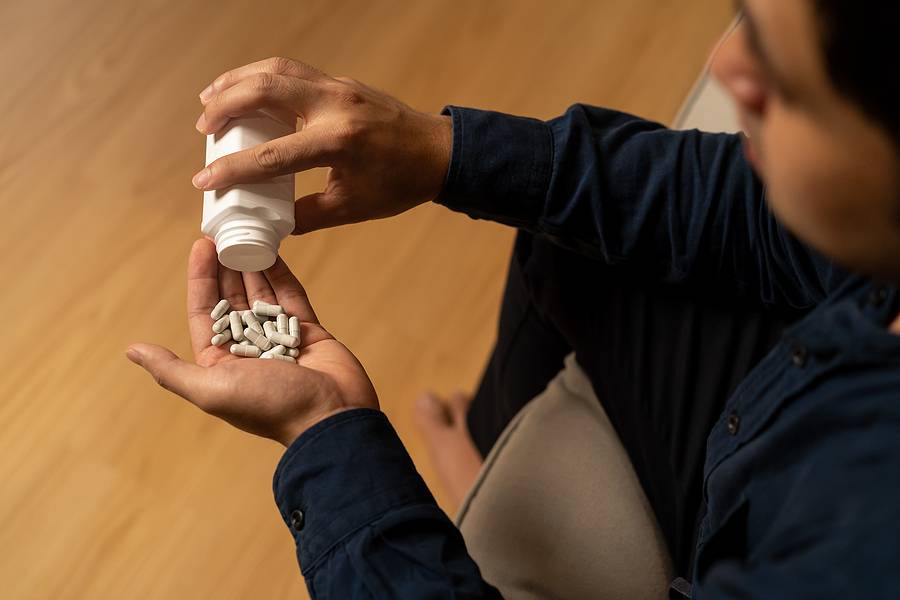The opioid epidemic is a critical problem in the United States. Possessing or selling opioids are a crime in Texas. Overdose is the leading cause of injury-related deaths in America, with the majority of overdoses now involve opioids. In Texas, one out of four people has experienced an opioid overdose or knows someone that has. The CDC (Center for Disease Control) note that deaths involving synthetic opioids (largely illicitly made fentanyl) and stimulants (such as cocaine and methamphetamine) have increased in recent years.

What are Opioids?
Opioids are a class of drugs that work as pain relievers by interacting with opioid receivers in your cells. Common opioid drugs include fentanyl, heroin, oxycodone (OxyContin), hydrocodone (Vicodin), morphine, and methadone. Used correctly, under good medical supervision, patients can enjoy the benefits of these pain reliveing drugs. Misuse and abuse ends in addiction and death.
Is Possessing or Selling Opioids a Crime in Texas?
Although opioids can be legally used when prescribed by a doctor, they are a still categorized as a controlled substance under Texas law. Because they are a controlled substance, it is a crime to possess or sell opioids. The Texas Controlled Substance Act outlines the details of the law, definitions, and applications.
What Penalty Group are Opioids Under Texas Law?
Texas divides controlled substances into six categories called penalty groups:
• Penalty Group 1
• Penalty Group 1-A
• Penalty Group 2
• Penalty Group 2-A
• Penalty Group 3
• Penalty Group 4
The punishment for drug-related crimes depends significantly on the penalty group the controlled substance falls into, with Penalty Group 1 having the harshest penalties and Penalty Group 4 having the mildest.
In general, opioids fall into two categories—Penalty Group 1 and Penalty Group 3. Fentanyl, heroin, methamphetamine, codeine, hydrocodone, and oxycodone are all Penalty Group 1 drugs. Penalty Group 3 opioids include benzodiazepines, anabolic steroids, and methylphenidate.
What are the Penalties for Possessing Opioids in Frisco?
If you are convicted of illegally possessing opioids, your penalty will depend primarily on the type and amount of opioids in your possession. If you are charged with possessing an opioid in Penalty Group 1, it is a felony. Penalties start at two years in state jail and up to $10,000 in fines for amounts less than one gram and up to a life sentence in prison and up to $250,000 in fines for amounts over 400 grams or more.
The penalties are lower if you are charged with possessing an opioid that falls into Penalty Group 3. They start at a year in jail and up to $4,000 in fines for smaller amounts. If you are charged with possessing 200 or more grams, you can face up to 20 years in prison and fines of up to $10,000.
What are the Penalties for Selling Opioids?
If you are caught selling opioids in Texas, you could be charged with drug trafficking. Drug trafficking is one of the most serious crimes you can be charged with in Texas. If the opioid is a Penalty 1 drug, the offense is always a felony. For amounts less than one gram, it is a state jail felony punishable by a year in jail and a fine of up to $4,000. If you are caught selling 200 grams or more, the offense is an enhanced first-degree felony, punishable by up to a life sentence in prison and up to $250,000 in fines.
Experienced Frisco Criminal Defense Attorney Philip D. Ray
Opioids are illegal in Texas. If you or someone you know is facing drug charges, whether for Opioids, other controlled substances, or marijuana, you should immediately reach out to local Frisco, criminal defense attorney, Philip D. Ray. As an experienced criminal attorney and former prosecutor, he will provide you with a skilled and aggressive defense. Call The Law Offices of Philip D. Ray today at (469) 588-6770 for a consultation.
